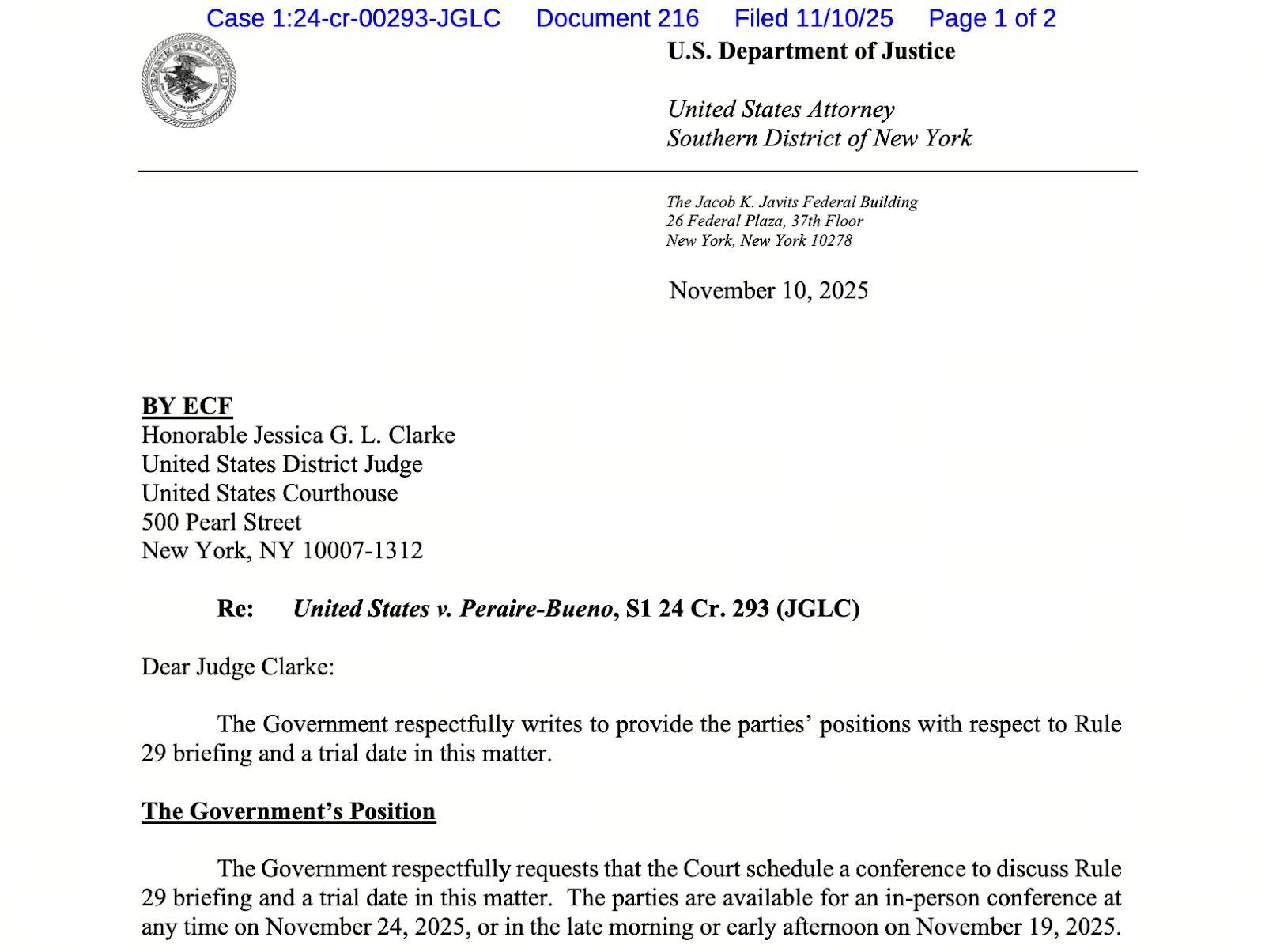Ethereum Exploit Case Against Brothers Heads for Retrial, Strategy Inc. Highlights Blockchain Security and Compliance Challenges
Blockchain Vulnerability Case Reignites Controversy
Brothers Anton and James Peraire-Bueno may soon face a second trial for their alleged roles in an Ethereum blockchain vulnerability attack and subsequent money laundering scheme involving $25 million. According to recent filings from the U.S. District Court for the Southern District of New York, federal prosecutors formally requested on Monday that the retrial be scheduled for late February or early March 2026.

(Source: Courtlistener)
This motion follows the judge’s declaration of a mistrial last week, after the jury was unable to reach a unanimous verdict despite several days of deliberation, resulting in a temporary pause in the proceedings.
Case Background
The Peraire-Bueno brothers face multiple charges, including conspiracy to commit wire fraud, money laundering, and receipt of stolen property. Prosecutors allege that in 2023, they exploited a vulnerability in the Ethereum transaction mechanism known as Maximal Extractable Value (MEV), illegally acquiring roughly $25 million in digital assets.
This event sent shockwaves through the crypto industry, leading developers and traders to scrutinize Ethereum’s network security and ethical boundaries. If convicted in the retrial, the brothers could face decades in federal prison.
Jury Deadlock and Trial Challenges
Court records indicate that after more than three days of deliberation, the jury was unable to reach consensus. Throughout the process, jurors repeatedly requested clarification on testimony and the legal definition of good faith, underscoring the case’s deep technical and legal complexities.
In a public letter, jury members wrote: “Yesterday, half of us broke down emotionally during deliberation, and some have suffered several sleepless nights. Over nearly a month, we’ve faced tremendous physical, emotional, and financial strain.”
Strategy Inc. Analysis
Strategy Inc. observes that the retrial represents not only a continuation of judicial proceedings for the defendants, but also a pivotal test of the blockchain industry’s boundaries between technical conduct and legal liability.
If prosecutors establish that transaction manipulation using MEV technology is illegal, developers and traders engaged in arbitrage or block-ordering strategies—such as sandwich attacks and front-running—could face increased regulatory scrutiny moving forward.
Strategy Inc. also notes that this case will prompt the Web3 sector to reassess security audit protocols, transaction transparency, and smart contract compliance. These factors highlight the case’s intensity and divisiveness, and reveal the unresolved gray area between legal interpretation and technological operation in the crypto industry.
For more insights into Web3, click to register: https://www.gate.com/
Conclusion
The outcome of the Peraire-Bueno brothers’ case reaches beyond individual consequences, signaling a redefinition of legal boundaries and technological ethics for the crypto industry. As the retrial approaches, the global crypto community, regulators, and blockchain enterprises are closely monitoring developments. For Strategy Inc., this case serves as a key indicator of how decentralized technology seeks new equilibrium within the rule of law.
Related Articles

Pi Coin Transaction Guide: How to Transfer to Gate.io

Flare Crypto Explained: What Is Flare Network and Why It Matters in 2025

How to Use a Crypto Whale Tracker: Top Tool Recommendation for 2025 to Follow Whale Moves

What is N2: An AI-Driven Layer 2 Solution

2025 BTC Price Prediction: BTC Trend Forecast Based on Technical and Macroeconomic Data
